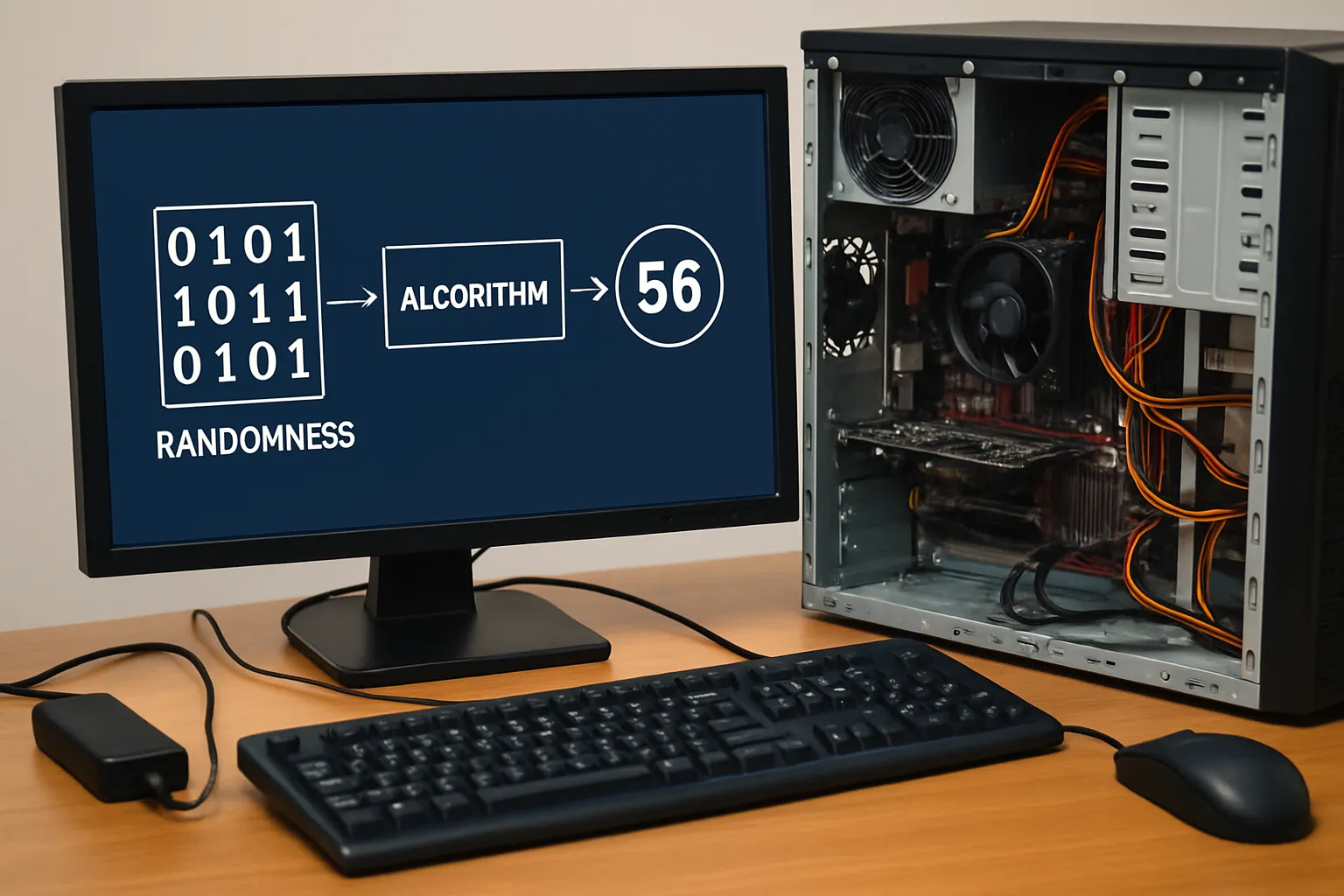If you’ve ever played an online slot, blackjack game, or even tried your luck at digital roulette, you’ve already put your trust in one of the most important and least understood technologies in online gambling: the random number generator (RNG). To the casual player, RNGs are invisible. You spin the reels or draw a card, and the outcome simply appears. But beneath the surface, a highly sophisticated system ensures that every result is fair, unpredictable, and free from human manipulation.
I’ve spent years both playing and studying the mechanics of online casinos, and I can tell you that understanding RNGs isn’t just for tech enthusiasts. If you know how they work, you gain a sharper eye for spotting trustworthy casinos versus those cutting corners. This knowledge can even help you choose where to play more wisely — particularly if you prefer reputable environments such as fast payout casinos, where fairness and transparency are part of the overall appeal.
So, what really happens behind the screen when you click “spin” or “deal”? Let’s dig into the world of RNGs and uncover what makes them the backbone of fair online gaming.
The Core Purpose of RNGs in Online Casinos
At its heart, the job of a random number generator is simple: produce outcomes that are completely unpredictable. In an online slot, the RNG determines where the reels land. In blackjack, it decides which card you’re dealt. Without an RNG, online games would either follow a predictable sequence or be vulnerable to human tampering.
Casinos use RNGs to replicate the unpredictability of real-world games. A physical deck of cards or a roulette wheel always carries an element of chance. RNGs simulate that randomness in the digital space, creating outcomes that are as close to “true randomness” as modern technology can deliver.
Pseudo-Random Numbers vs True Randomness
It’s worth noting that most online casinos don’t use truly random numbers in the strictest sense. Instead, they rely on pseudo-random number generators (PRNGs). PRNGs use complex algorithms and seed values (like system time) to create sequences of numbers that appear random.
Why not use true randomness, like radioactive decay or atmospheric noise? While possible, true RNGs are expensive and harder to integrate into casino software. PRNGs, on the other hand, can generate billions of results per second, making them practical for high-speed online games.
For players, the difference is irrelevant as long as the algorithms are robust and audited. Independent testing agencies, such as eCOGRA and iTech Labs, regularly review RNGs to ensure that the numbers they produce are unpredictable and fair.
How RNGs Keep Games Fair
Fairness is at the core of why RNGs matter. Imagine if you knew that a slot machine was programmed to hit a jackpot after exactly 1,000 spins. That would make the game predictable, and casinos could lose millions. RNGs eliminate such predictability by constantly producing random results, even when no one is playing.
Here’s a fascinating detail: RNGs are always running in the background, churning out numbers every millisecond. When you click “spin,” the game simply locks in whatever number the RNG generated at that exact moment. That number corresponds to a game outcome — a reel position, a card draw, or a roulette landing spot.
This constant generation means outcomes are never predetermined. Even if you played the same game at the exact same time as another player, the RNG would give you different results.
The Certification Process Behind RNGs
Of course, casinos can’t just claim their RNGs are fair — they need proof. That’s where certification and auditing come into play. Independent labs test the software using statistical analysis to ensure that outcomes align with expected probabilities. For example, if a slot machine has a 96% return-to-player (RTP) rate, the RNG must be delivering outcomes that match this figure over the long run.
These audits aren’t just a one-time event. Reputable casinos undergo regular reviews, ensuring their games remain compliant. For players, looking for certification seals on a casino’s website is a practical step toward choosing where to play safely.
Common Misconceptions About RNGs
A lot of myths surround RNGs, and I’ve heard plenty of them from frustrated players. One common belief is that casinos “tighten” slots during busy periods, making them harder to win. Another is that casinos can flip a switch to control your luck.
The reality is far less dramatic. Licensed casinos can’t manipulate RNGs on the fly without violating regulatory rules and risking their license. If they’re certified, their software is locked against tampering. Losing streaks are simply the nature of probability, not proof of manipulation.
Why RNGs Are Crucial for Trust
In the online casino industry, trust is everything. Players want to know that the games aren’t rigged, and regulators want to ensure casinos operate fairly. RNGs provide the foundation for that trust. Without them, the entire online gambling industry would collapse under suspicion.
This is why the best operators invest heavily in certified RNGs and transparent practices. They know that once players lose confidence, they won’t come back. For players, this highlights the importance of choosing licensed casinos that openly publish their certification and testing results.
Real-World Example: Slots and Probability
Let’s take a slot machine as a concrete example. Suppose a game has five reels and three rows, with ten symbols per reel. The RNG doesn’t just spin the reels visually. Instead, it generates a number that corresponds to the symbol combination for each reel.
This system ensures that every spin is independent. Just because you’ve lost ten times in a row doesn’t mean a win is “due.” The RNG doesn’t have memory; it doesn’t know your history. Each spin is a fresh outcome, created by the algorithm at the moment you press the button.
Where RNGs Are Headed in the Future
Technology continues to evolve, and so do RNGs. Some developers are experimenting with blockchain-based random number generation, which adds another layer of transparency. Because blockchain records can’t be altered, they allow players to verify fairness independently of the casino.
Others are exploring quantum RNGs, which use the inherent randomness of quantum mechanics. While still rare in commercial casinos, these developments could define the next generation of online gaming fairness.
Final Thoughts
Random number generators may be invisible, but they are the heartbeat of online gambling. They make sure every card dealt and every spin of the reel is unpredictable and fair. While most players don’t think about what’s happening behind the scenes, understanding RNGs gives you a clearer view of how online casinos really work.
If you stick with licensed and audited operators, especially those known for player-friendly practices like fast payout casinos, you can enjoy the games with confidence. RNGs aren’t about luck management; they’re about guaranteeing fairness. The next time you hit “spin,” you’ll know there’s a powerful algorithm running in the background, keeping the game honest and the thrill alive.








